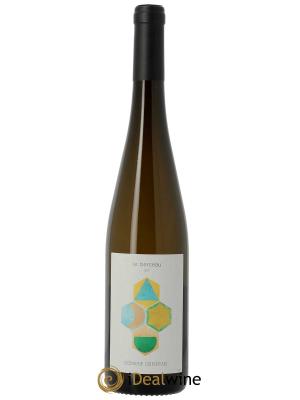Information
Located in Epfig, in the Lower-Rhine, the Domaine Ostertag ("Easter Day") has raised itself to the top of the hierarchy of Alsace properties in just two generations. Adolphe Ostertag created the Domaine in 1966. His son André took over in 1980, helped by his sister Annie. There are 15 hectares of vines, consisting of a hundred plots spread over five different terroirs. André Ostertag is in the habit of talking of the 80 gardens that he tends.
Trained in Burgundy, André has made quality his priority. Controlled yields, careful management of the vines, meticulous vinification, and ageing partially in barrels (for the Pinot Gris). In 1997, he converted the vineyard to organic farming (with AB certification) and then to biodynamic methods (without certification). Riesling, of which André Ostertag is a big fan, accounts for nearly 50% of the property's vines. The other varieties, in decreasing proportions, are Gewurztraminer, Pinot Gris, Sylvaner, Pinot Noir and Muscat. Different combinations of terroirs, grape varieties and levels of ripeness enable the Domaine to produce about twenty cuvées each year. André Ostertag classifies them in three main families: fruit wines (expressing the variety and grape flavours); stone wines (expressing the terroir); and vins de temps (which involve both meanings of the French word "temps" i.e. "weather" and "time", resulting in late ripening or noble rot).
This dry wine is called “Berceau”, which means cradle in English, because the Riesling grapes that make it come from young, massal selected vines that grow in Domaine Ostertag's “nursey”. The Pflanzer plot where the vines grow on a steep, south facing slope has a number of advantages; it catches the wind, the pebbled soils are well draining, the stones release the day's heat during the night, and water stress is avoided even in hot vintages thanks to the nearby underground water source. It was the perfect health of the vines that convinced the winemaker to take grafts.
Vinification and maturation took place over 20 months in stainless steel vats. Alcoholic fermentation was started by natural yeasts and malolactic fermentation was allowed to follow.
Tasting this wine reveals a gem that is complex, deep and fine. Freshness and minerality are present as well as notes of candied citrus fruit zest, flowers and spices. The palate is vibrant and ample.
Price estimate for wine from the same producer
Region: Alsace
Producers and wineries: Ostertag
Colour: white
Appellation: Alsace
Owner: Ostertag (Domaine)
Service temperature: 10°
to statistics for over 126,000 price estimates


